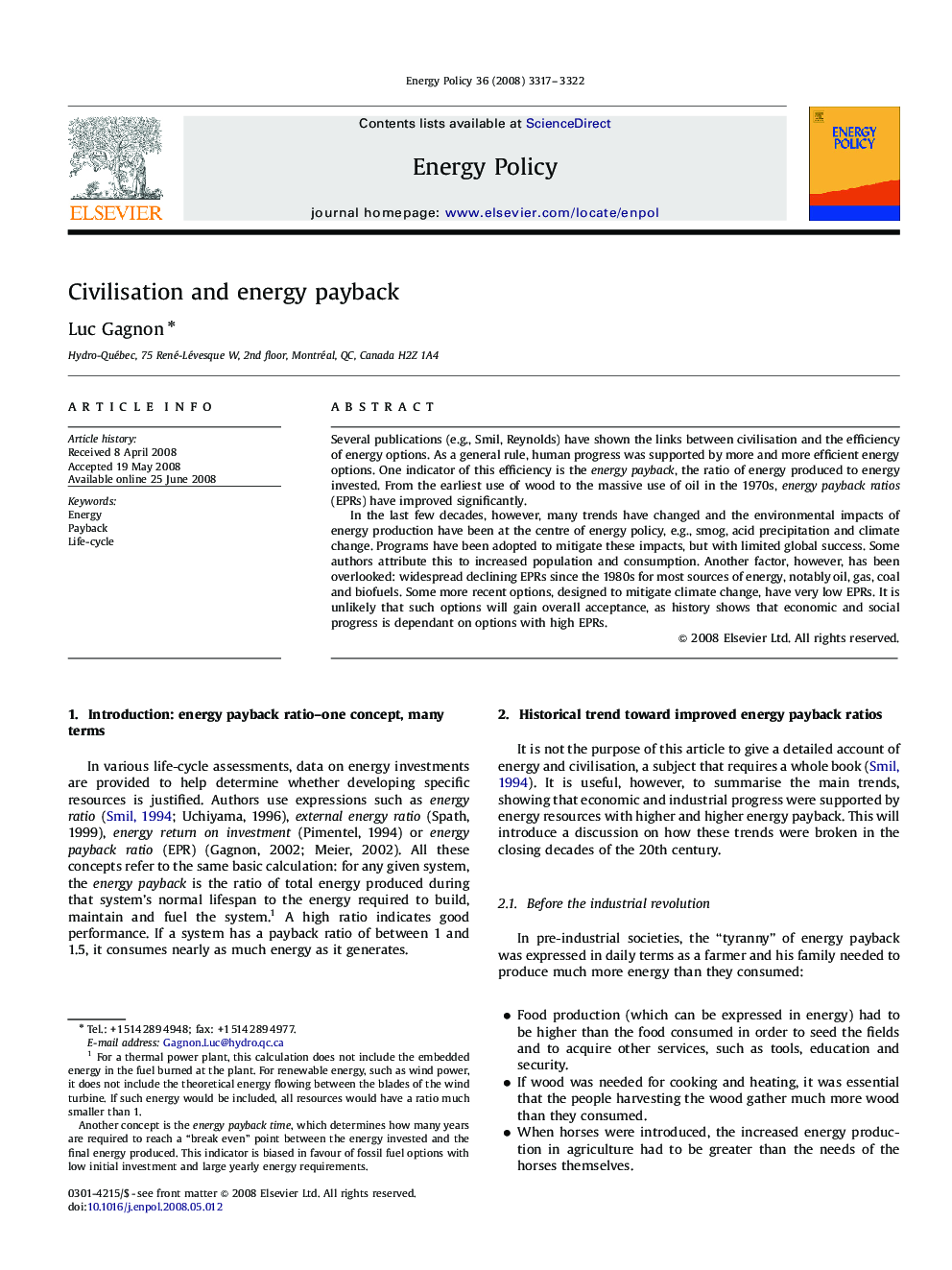| Article ID | Journal | Published Year | Pages | File Type |
|---|---|---|---|---|
| 993820 | Energy Policy | 2008 | 6 Pages |
Several publications (e.g., Smil, Reynolds) have shown the links between civilisation and the efficiency of energy options. As a general rule, human progress was supported by more and more efficient energy options. One indicator of this efficiency is the energy payback, the ratio of energy produced to energy invested. From the earliest use of wood to the massive use of oil in the 1970s, energy payback ratios (EPRs) have improved significantly.In the last few decades, however, many trends have changed and the environmental impacts of energy production have been at the centre of energy policy, e.g., smog, acid precipitation and climate change. Programs have been adopted to mitigate these impacts, but with limited global success. Some authors attribute this to increased population and consumption. Another factor, however, has been overlooked: widespread declining EPRs since the 1980s for most sources of energy, notably oil, gas, coal and biofuels. Some more recent options, designed to mitigate climate change, have very low EPRs. It is unlikely that such options will gain overall acceptance, as history shows that economic and social progress is dependant on options with high EPRs.
